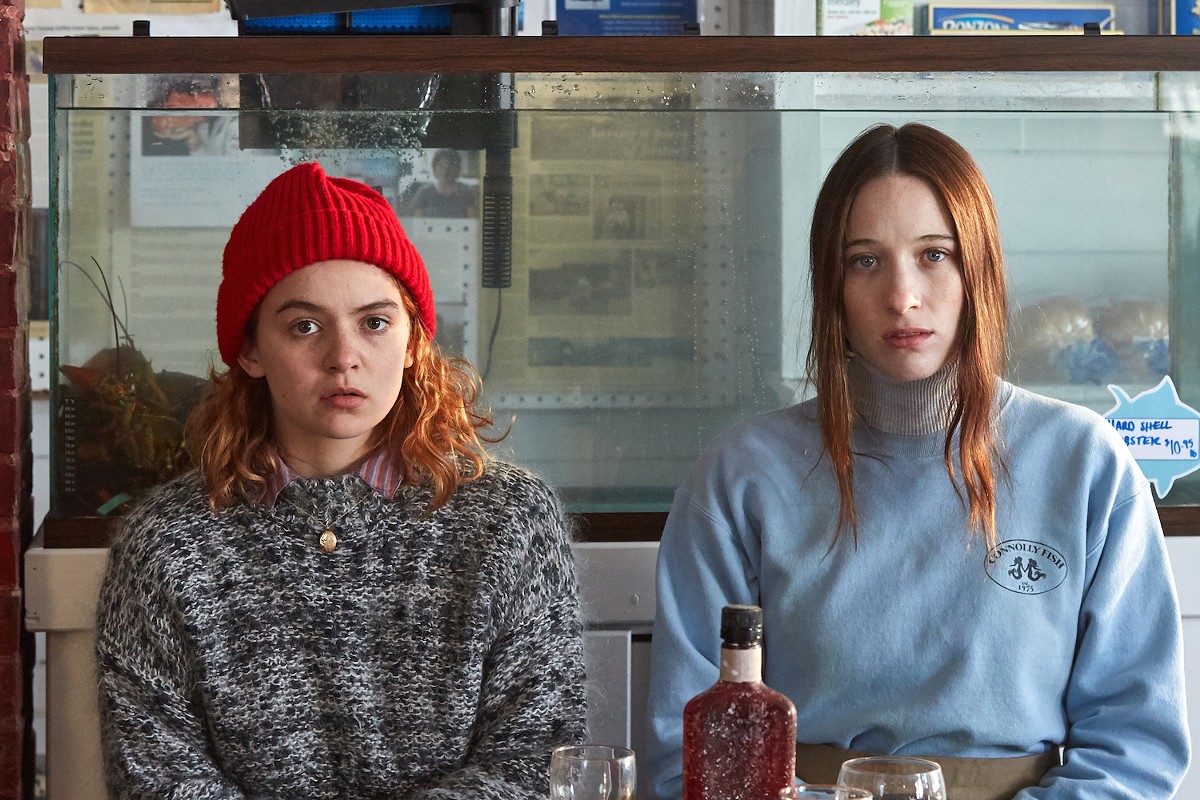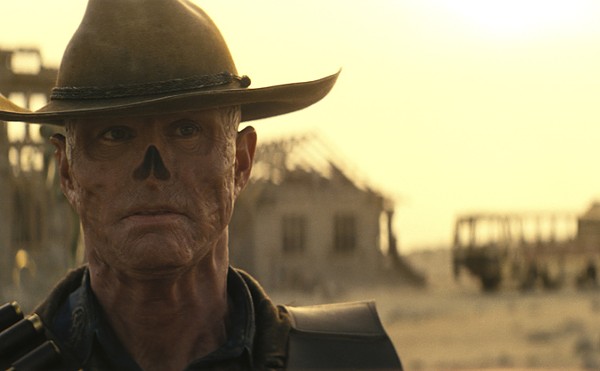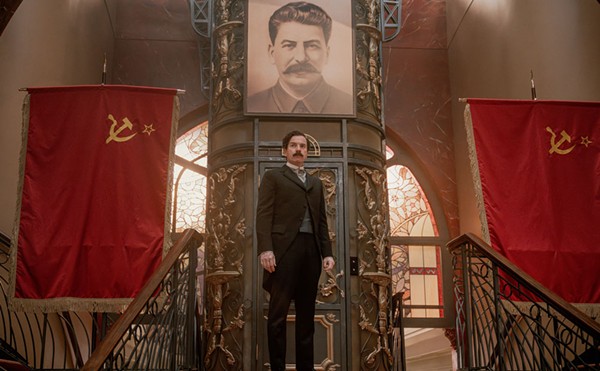How do women manage the crimes and misdemeanors of men? How do women survive them? There is no one answer; there are many answers, and varied ones ... and sometimes the tough but rational choices women make in situations in which they have little power or autonomy bump up against the tough but rational choices made by other women in similar straits. This thorny knot of competing motives and pragmatic morality is at the heart of the quietly savage and occasionally weirdly funny Blow the Man Down.
With their feature debut (streaming exclusively on Amazon Prime), writer-directors Bridget Savage Cole and Danielle Krudy give the crime-noir genre a radical, feminist rethink the likes of which I cannot recall seeing before, and the simmering anger, nay, the ferocity of which only becomes apparent the further down the rabbit hole of small-town interpersonal politics we tumble herein.
Our introduction to the village of Easter Cove, Maine, comes via a classic sea chanty – the one that gives the film its name, and it will come with an ironic sting – sung by the local fishermen. It's thrillingly presented, a bold, off-kilter music video of an opener, and yet it's also somehow comforting, redolent of tradition. It's the sort of thing you might see in a TV ad for frozen fish sticks, a way to reassure a worried mom that this choice for the family dinner is a wholesome, all-American one.
We see the aspects of women's realities that male filmmakers either never see or are often unable to fully understand.
tweet this
What else is traditional and all-American? The secrets of the town that sisters Mary Beth (Morgan Saylor) and Priscilla (Sophie Lowe) Connolly start to uncover in the wake of the death of their mother, a bedrock of the little community and an unofficial town elder. I am loath to say too much about the plot, because one grim joy of Blow is how cleverly and wisely it lets its intentions unfurl.
As the sisters struggle to figure out how to move on with their lives – Mary Beth can't want to get back to college, which she had put on hold for a year to tend their ailing mother; Priscilla is trying to keep the family's fish shop running – they must contend with the aftermath of a violent encounter with a young man who is their peer.
At the same time, they're learning things about their mother's friends – tough entrepreneur Enid Nora Devlin (Margo Martindale) and interfering busybody Susie Gallagher (June Squibb) among them – that center around how they all coped with corralling men intent on taking advantage of women.
And yet all that is too reductive! Our initial impressions of all these women are too narrow – in fact, we come to realize, they've been shaped by cruel, sexist stereotypes. Conflict and compassion wax and wane to become the smart and sneaky driving force of a noir in which the mystery to be solved isn't quite what we think it is.
There are dead bodies here, literal and figurative, but the question of "Who did this murder?" is one a lot more intricate and complicated than even this twisty genre has trained us to expect. The mysteries here have answers that are unsettling ... and, depending on your perspective, those mysteries might perhaps even be considered ultimately unsettled.
This is what happens when women filmmakers start telling stories about women's lives told from women's points of view. We see the aspects of women's realities that male filmmakers either never see or are often unable to fully understand and empathize with. Blow gets under the skin, with its profound understanding of how so many women face such limited options for improving our lives or just getting through the day. The necessary pragmatism of women's lives is on full display here, and yet that pragmatism is often hidden from men ... as it is in Easter Cove.
Cheekily, Blow the Man Down goes full #NotAllMen on itself. Turning upside-down the gender dynamic that prevails across too many movies, men are in a minority here among the wonderful female cast and the authentic array of female characters with different agendas, diverse takes on the world and opposing desires.
The two most prominent male characters are knowing clichés. Older cop Officer Coletti (Skipp Sudduth) is a harmless dolt, the lazy old hand who can't be bothered much anymore to do his job while still enjoying its perks. But much younger Officer Brennan (Will Brittain) is sharper, keener, and unable to take the easy route to close a case.
Coletti may be blind to the subterranean social structure of the town, but Brennan is starting to get an inkling that the world is a lot more complex than it seems from his perch, with players who have remained out of sight. That might be uncomfortable for him, but as far as women's hidden lives finally being appreciated, that's a glimmer of hope for the future.
—This story appears in the April 1, 2020, print issue of Orlando Weekly. Please follow CDC guidelines and Orange County advisories to stay safe, and please support this free publication. Our small but mighty team is working tirelessly to bring you news on how coronavirus is affecting Central Florida. Please consider making a one-time or monthly donation. Every little bit helps.
















